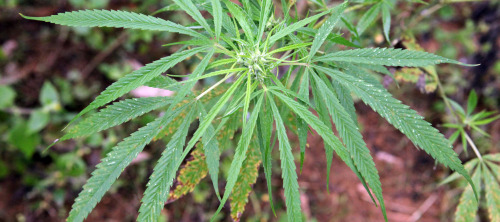
Back in the early Sixties when the Flower Children were getting high, parents in the US government were consulting Prof. Raphael Mechoulam from Israel about the effects of pot smoking on their teens. Mechoulam, an organic chemist from the Hebrew University of Jerusalem, was the first to isolate the psychotropic element THC in the cannabis plant. He dubbed its active chemical components ‘cannabinoids.’
Ever since his discovery, the medical community has recognized and lauded the importance of cannabinoids in alleviating chronic pain and nausea in cancer patients and modulating the symptoms of HIV/AIDS. A new study, this time at Israel’s University of Haifa, has found a reason to legalize the use of cannabinoids, assuming that its benefits outweigh the potential risks.
According to the study by Dr. Irit Akirav from the Department of Psychology at Haifa University, cannabinoids may relieve the symptoms of Post Traumatic Stress Disorder (PTSD), a debilitating disorder that strikes 10 to 30 percent of people who suffer from a traumatic event such as war, a car accident, rape or a terrorist attack.
In her study published in the Journal of Neuroscience, Akirav used an animal model and a synthetic form of marijuana that didn’t induce psychotropic effects, to measure the compound’s efficacy at reducing the effects of PTSD.
Relieves stress in rats
In the first part of the study, Akirav and her students examined how long it took rats to recover from the trauma of electric shock without the drug. Some of the traumatized rats were exposed to a series of procedures intended to stress them even further, while another group of rats was exposed to both stress and trauma but also received a dose of cannabinoids directly to the brain – into the amygdala region. The amygdala is known to be connected to emotional memory, which is linked to PTSD.
Researchers concluded that rats that received the drug experienced hormonal changes and consequently their brains didn’t release an increase of the stress hormone that the body normally produces as a reaction to stress. People with PTSD are found to have abnormal levels of this stress hormone.
“The results of our research should encourage psychiatric investigation into the use of cannabinoids in post-traumatic stress patients,” Akirav, who hopes that if enough animal studies are conducted in this area, sufficient evidence will be provided to convince clinicians to initiate trials on humans, tells ISRAEL21c.
There is already talk in Israel about conducting clinical trials on soldiers in the Israel Defense Forces to investigate the effects of cannabinoids on PTSD, but Akirav says she will continue to work at present with animals. She believes that in the case of PTSD, the cannabinoids, which seem to be a perfect fit to cure many disorders and diseases in our bodies, have an effect on emotional memory.
Weighing risks and benefits
“In the case of people with PTSD, it could be a good solution to take marijuana, but we still don’t know the possible negative effects of the drug,” she cautions. “For PTSD sufferers, where their situation is terrible, something like marijuana has other effects – an effect on anxiety, and we are trying to pinpoint brain areas that are involved.”
But more than providing anxiety relief, cannabinoids could affect emotional memory and enhance PTSD treatments by modulating the emotional memory component, she argues. Akirav believes that in pill or drug form they could be used in combination with exposure therapy to stymie the effect of a trauma. And since cannabinoids are already widely used and in some cases prescribed as cancer therapies, they could potentially pass through regulatory hurdles quickly as a drug to treat PTSD.
“As opposed to other drugs, one wouldn’t need to adjust it, because people use it already as a chronic therapy for HIV and it helps them,” she says. However, she concludes, in the case of PTSD, more extensive studies are still needed to ensure that the benefits of taking cannabinoids would outweigh the risks.













